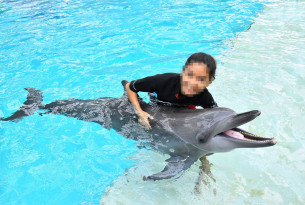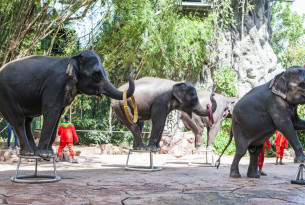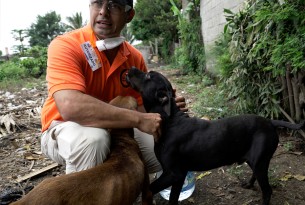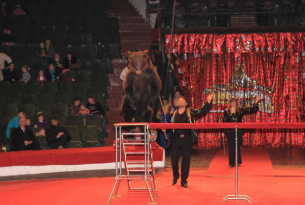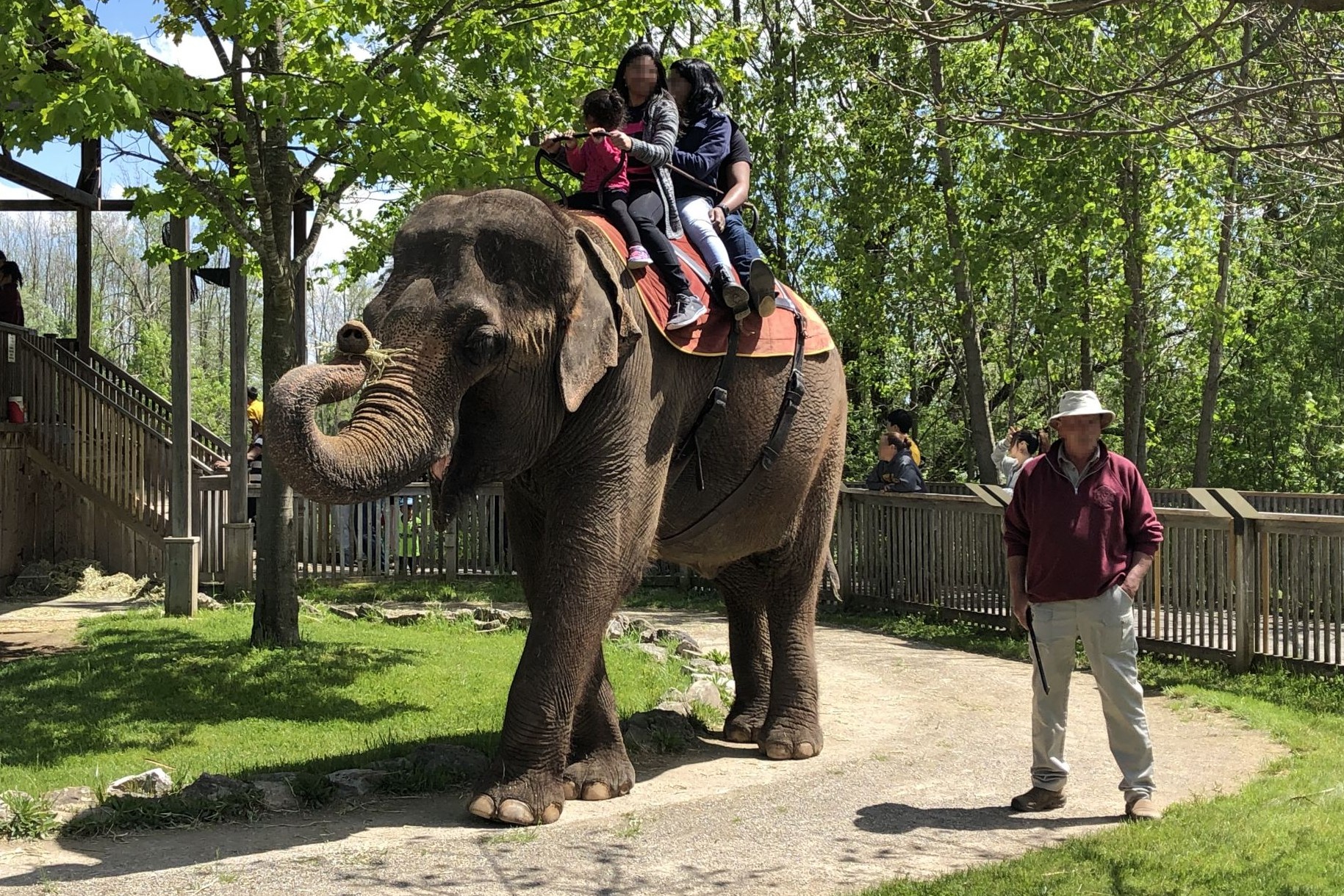
Let’s talk about elephant rides and shows at African Lion Safari
Earlier this month, we asked our wonderful supporters to join us in asking African Lion Safari, as well as the Ontario government, to end elephant rides and shows by sending them an e-letter.
UPDATE: As of July 2021, African Lion Safari has shared a statement saying that they permanently stopped elephant rides. Read more:
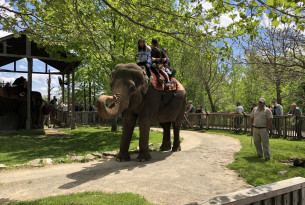
No more elephant rides at African Lion Safari
You took a stand for elephants and called for an end to the suffering they endure being used for entertainment, and we are pleased to share the news that...
In 2019, we asked our wonderful supporters to join us in asking African Lion Safari, as well as the Ontario government, to end elephant rides and shows by sending them an e-letter. Now, we are thrilled to share that African Lion Safari has confirmed the permanent end to their elephant rides. This is a win for animals that was made possible by your support as more than 7,700 of you took a stand for elephants and sent an e-letter.
We received a lot of support and positive feedback about the campaign as well as a lot of questions and comments that we would like to address.
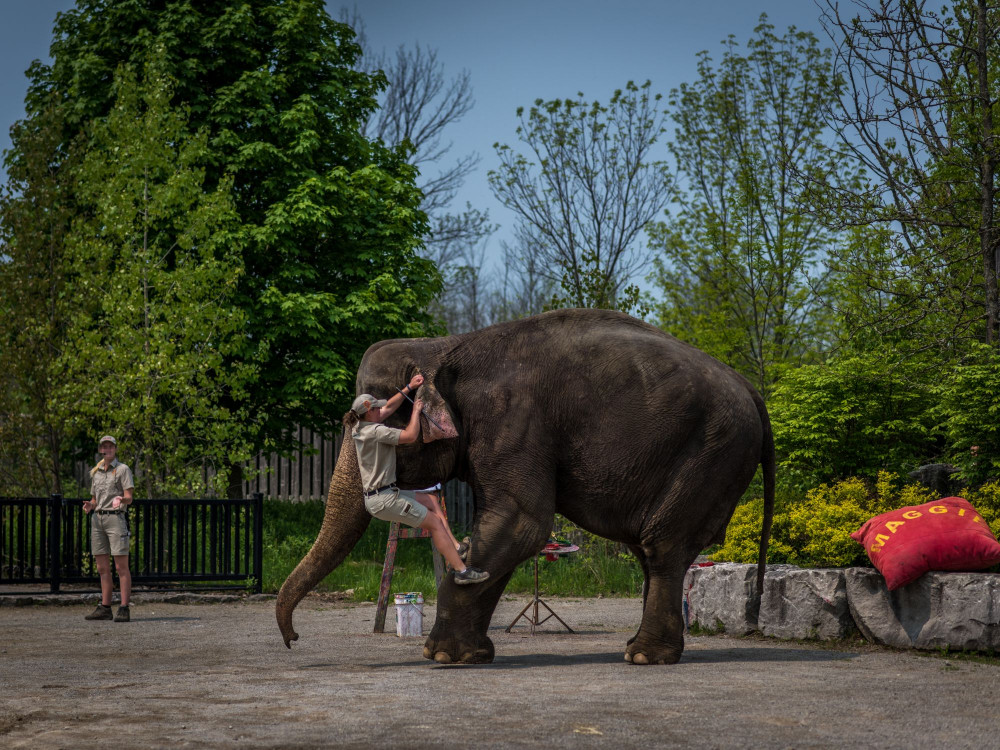
Why are we asking African Lion Safari to end elephant rides and shows?
The decision to launch our e-letter campaign came following global research we had conducted on activities that contravene professional zoo policy, and two visits to African Lion Safari, at the end of May and early June 2019.
Through our research with the University of Oxford’s Wildlife Conservation Research Unit, we know that elephant rides are among the cruellest tourist activities because of the amount of suffering the elephants endure, physically and emotionally.
Many people may be surprised to learn that in order for zoos and other attractions to allow people to get up close with elephants to pet, bathe, and ride them, they must be cruelly trained to fear people, and obey commands. While we recognize that training methods vary across regions, methods typically involve social isolation, physical restraints, inflicting severe pain and withholding food and water. By the time tourists come to ride an elephant, he/she may look at peace, but this is because its spirit has been broken. The bullhook is used on thin areas of the elephant’s skin to cause pain and pressure, the elephants then learn to avoid it or face the consequences. This is not trust or cooperation. Elephants give rides to avoid being beaten. The bullhook reminds them of the punishment they face if they disobey a command.
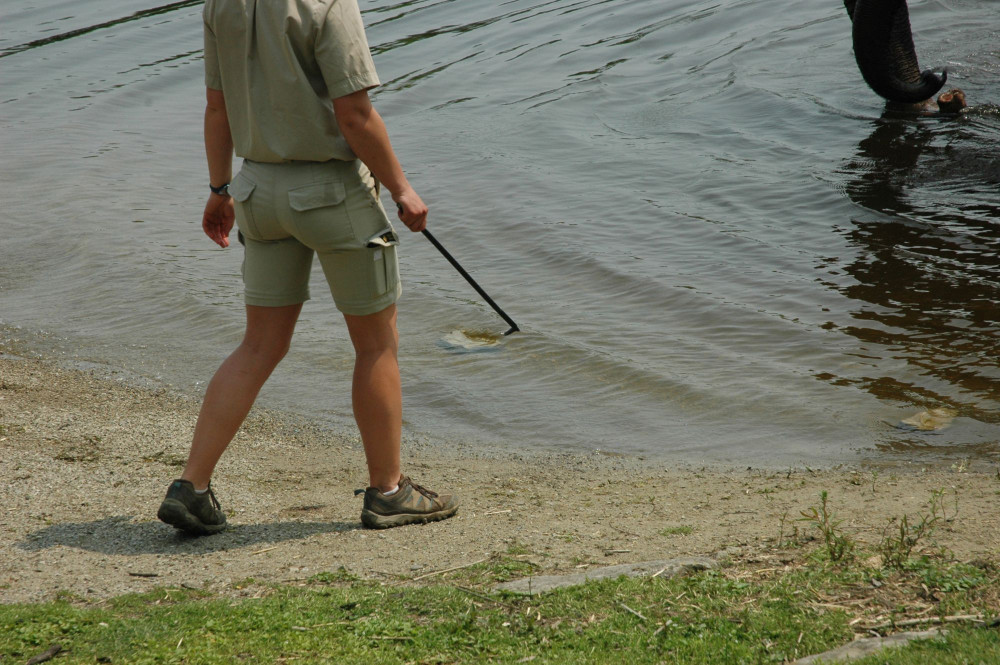
The training is necessary if there is no barrier between the elephant and people (known as free contact management) because an elephant is dangerous and can seriously injure and kill people – and they have. The use of negative (and positive) reinforcement is needed to establish dominance to keep handlers and zoo visitors safe when close to the elephant. It also means the elephants need to be punished when they disobey commands.
This is why many zoos are moving to protected contact management of elephants where there are always barriers between the keepers, visitors and the elephants.
Aren’t there regulations in place to prevent animal cruelty at Canadian zoos?
How Canada deals with animal cruelty at zoos, differs between provinces. For example, Ontario does not require a license to keep exotic wild animals in zoos and wildlife displays and the captive wildlife standards under the Ontario Provincial Animal Welfare Services (PAWS) Act are inadequate and poorly enforced.
Sometimes animal cruelty is easily identifiable when physical abuse is witnessed. But the abuse elephants endure to be trained for rides and performances isn’t shown to the public. This training can have a significant negative impact on an elephant’s psychological welfare and these elephants carry invisible scars.
While the Canada’s Accredited of Zoos and Aquariums (CAZA) sets standards for its accredited members to follow, it is largely up to the zoo industry to police itself and our new report shows they aren’t enforcing their own rules and standards.
Don’t zoos that are members of the World Association of Zoos and Aquariums (WAZA) and accredited by the Canada’s Accredited of Zoos and Aquariums (CAZA) have to adhere to higher animal welfare standards?
Unfortunately, accreditation doesn’t always ensure best practices are being enforced. For example, the two zoos in Canada cited in our report for offering cruel activities (elephant rides and wildlife selfies) were both members of WAZA and accredited by Canada’s Accredited Zoos and Aquariums.
Our extensive research of venues linked to WAZA has exposed awful abuse of animals for entertainment. Tigers and lions forced to perform. Dolphins being ridden. Elephants performing tricks. And much more.
As WAZA is the main global umbrella organization for zoos and other related institutions, they should lead the way with clear animal welfare standards and guidelines for their members, including African Lion Safari, and support their standards with robust monitoring. Their guidelines state that members should not involve animals “in animal shows, displays or interactive experiences where animals perform demeaning and unnatural behaviours.”
Sadly, we know from our staff visits that WAZA-linked venues around the world are not following these guidelines. With the industry policing itself, there is a clear need for governments to be involved by providing independent oversight to ensure animal welfare standards are being enforced.
Our report, ‘The show can’t go on’ highlights the suffering behind visitor interactions, including elephant rides and shows at African Lion Safari.
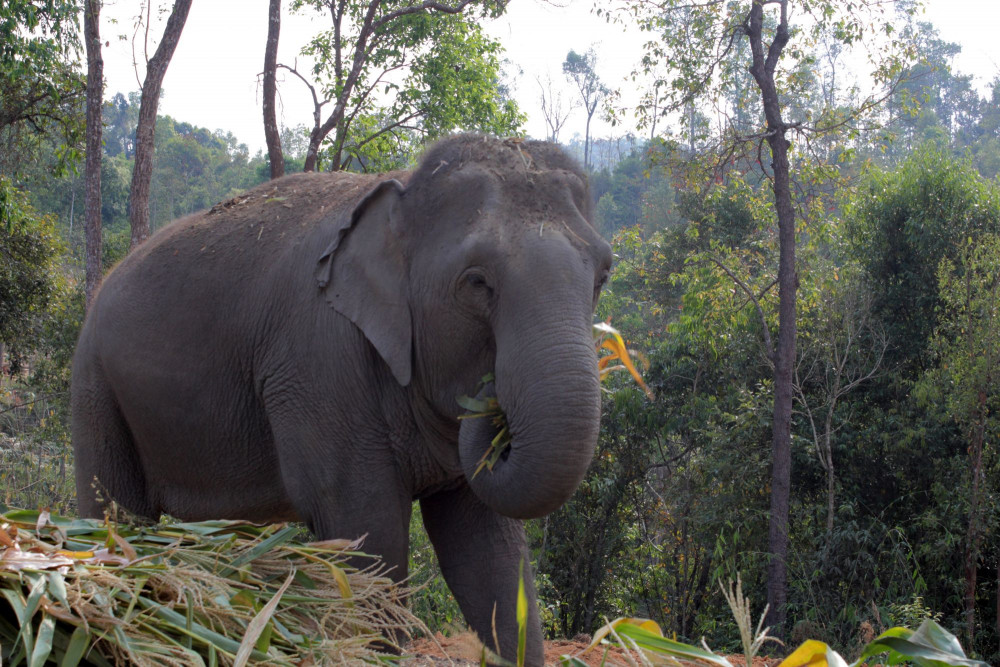
Can zoos properly care for and meet the needs of wild animals?
We believe that the only place that the physiological and psychological needs of wild animals can be properly met is in the wild. However, zoos are under obligation to meet the needs of the wild animals under their care as fully as possible. We are opposed to the commercial exploitation of captive wild animals purely for entertainment purposes. Zoos should never train animals for performances, never allow them to directly interact with the visiting public, and never farm or sell them. Some wild animals are better able to adapt to captivity than others and the needs of different species of wild animals vary. So too, do the conditions and levels of care provided by different zoos. But we know that some degree of suffering – no matter how minor – is always experienced by wild animals in zoos. We also know that zoos can play a vital role in the conservation of threatened wild species if they are managed according to best practice. We want zoos to focus their efforts on threatened species at immediate risk of extinction and channel most of their resources towards protecting wild animals in their natural habitats.
There is a better way
It is possible to educate about elephants and conservation without forcing them to give rides and shows. We are asking African Lion Safari to end the use of elephants for rides and shows as it is unnatural, can be a significant source of stress for the animals and is dangerous as this latest incident has shown. Asian or African elephants would never let you near them in the wild let alone on top of them naturally and must be trained to fear people, in order to accept a human rider or to obey commands.
There are ethical, cruelty-free animal tourism opportunities. We recently helped an elephant camp in Thailand transition to a completely elephant-friendly park. Tourists are able to see elephants in a more natural habitat and observe them from a safe distance. Click here to learn more about ChangChill and how they transitioned to be elephant-friendly.
Pledge to be elephant-friendly
Tourist demand for elephant rides and shows is driving these cruel activities. Elephants are suffering and it's completely unnecessary. We have the power to change this. Sign our pledge and help us shape a better future for elephants.


